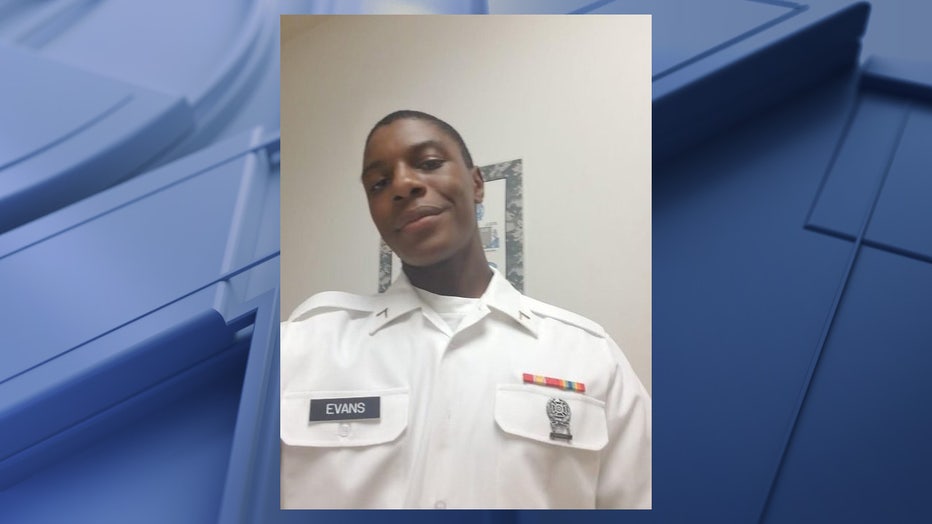Guardsman who drowned on Texas border had no float device
AUSTIN, Texas (AP) - A Texas National Guard member who drowned on the U.S.-Mexico border while on duty was not equipped with a flotation device when he jumped in the Rio Grande to help a migrant who was struggling to swim across, state officials said Wednesday.
Spc. Bishop Evans, who was missing three days before search crews found his body Monday, was among the more than 6,100 guard members stationed on the border as part of Republican Gov. Greg Abbott’s massive border security mission known as Operation Lone Star. The mission has 43 flotation devices for guard members who are assigned to boat missions, Maj. Gen. Thomas Suelzer said. Evans was not a boat crew member.
RELATED: Body of Texas National Guard soldier from Arlington recovered from Rio Grande

Photo Courtesy: Texas Gov. Greg Abbott, via Twitter
Requests for more flotation devices were first made in February but have been delayed by supply chain issues, Suelzer told lawmakers in the Texas Capitol while facing questions about Evans' death, low morale and equipment shortages that have rattled the yearlong mission. Guard leaders defended not issuing all soldiers flotation devices because, they said, many are stationed on land.
Suelzer said that since Evans' death, guard members have been instructed not to go in the water unless they have special training.
"(He) was a human being," Suelzer said. "He saw a human being drowning and he jumped in the water to save them."
Migrant rescues by Border Patrol are common along Texas' 1,200-mile border with Mexico. Attempted crossings are sometimes deadly.
Brig. Gen. Monie Ulis said that guard members mostly stay on the banks to help migrants, and that he could recall only four or five instances where a guard member went into the water.
Evans is at least the fifth guard member who has died during the mission, a number that included suicides, said state Sen. Roland Gutierrez, a Democrat has called for an inquest into the deaths. The mission includes thousands of state troopers, patrol boats on the Rio Grande and surveillance aircraft, and costs the state more than $2 million a day, said Steve McCraw, the director of the Texas Department of Public Safety.
Abbott gave guard members unusual authority last year to detain and arrest migrants, but most on the mission are assigned to observation posts. Guard leaders acknowledged morale problems, including equipment shortages and sparse living conditions, but said improvements have been made in recent months.
"Average morale would be about a seven," Ulis said. "Far above when we first started."

